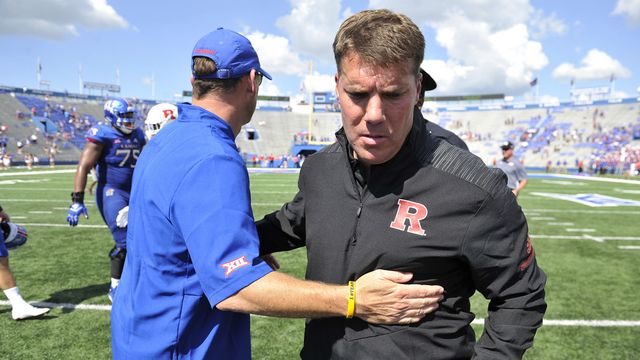Sports betting legalization experts helped sift through the proposed federal oversight bill.
Daniel Wallach, a Florida-based sports and gaming attorney, said that the U.S. Supreme Court decision in May which overturned the Professional and Amateur Sports Protection Act of 1992 made “clear that the federal government can require states to meet minimum federal standards, which is exactly what this bill does.”
“There is an important role that the federal government can play in sports betting,” said Wallach. “The concept of a national sports wagering clearinghouse — in which every bet or wager would be shared on an anonymized basis in real time with an independent third-party — is a mandate that is lacking in current state guidelines, which places the onus solely on the betting operators to report suspicious or unusual wagers.”
Dustin Gouker, lead sports betting analyst for PlayNJ.com, said that while the 101-page bill raises “a lot of questions,” a cursory reading of the draft does not provide a “grandfather clause” for states with existing sports betting regulations.
Gouker said the proposal, as it is currently written, is geared more toward states that have yet to pass a regulatory framework for legal sports betting.
“I don’t think there’s a lot of clarity in the bill,” Gouker said about how it could impact states with existing sports betting laws. “From what I can tell, it doesn’t directly address states currently accepting legal wagers.”
Two Atlantic City casinos were fined for accepting illegal bets on college football.
Caesars was hit with a $2,000 fine for accepting bets on the Rutgers-Kansas football game that was played on Sept. 10, according to state filings. The state does not specify which of the Caesars properties accepted the bets. The Division of Gaming Enforcement notified Casesars of the violation on Nov. 20, and the fine was imposed on Dec. 15.
Golden Nugget, meanwhile, was forced to forfeit $390 it had accepted on wagers by “unknown individuals” for “various New Jersey college football games in September 2018,” according to state filings. The state filed its complaint on Nov. 2, and Golden Nugget was ordered to forfeit the money on Dec. 13. The bettors were not repaid because their identities could not be determined.
Only two Indian casinos have started offering sports betting following this year’s Supreme Court decision overruling PASPA.
The book at Pearl River Resort is packed every college football Saturday, but remains an outlier months after the high court opened the door for expanded sports gambling across the United States by striking down a federal ban.
Tribes enthusiastically welcomed the decision in May but since then, the regulatory challenges and low-margin nature of the business have sunk in. Few Indian casinos have an enviable location like the Choctaw and many need state approval to add sports betting to their offerings.
Bordering states are racing to be first to legalize and regulate sports betting.
The Washington, D.C., councilman was in a hurry. As the city council prepared to pass a bill this month legalizing betting on sports, Jack Evans was eyeing states just across the city’s borders — Maryland and Virginia — that could prove stiff competition unless D.C. got established first.
“It’s important for us to get our legislation and our sports gambling up and running so we can be the first in our region and hopefully capture some of the market,” Evans said just prior to the bill’s 11-2 passage.
The council also adopted an emergency measure that allows sports betting to begin as soon as Democratic Mayor Muriel Bowser signs the bill, skipping the review period during which Congress can veto a new D.C. law.
The race to collect bettors’ cash continues as another 20 or so states are poised during their 2019 legislative sessions to approve sports betting. They’re encouraged by some estimates that taxes on legal sports betting could add millions of dollars for their treasuries, though experts urge caution in anticipating that kind of revenue.
Michigan may be poised to legalize sports betting next.
Michigan’s lawmakers passed legislation during the lame-duck session that would open the door to legal sports betting in the state. A single line added to a bill on online gaming authorizes the Michigan Gaming Control Board to allow sports wagering:
The division may permit internet gaming operators licensed by the division to accept internet wagers under this act on any amateur or professional sporting event or contest.
The governor’s signature is still needed.
Virginia also has sports betting legalization queued up.
If he were laying odds, state Sen. Chap Petersen would like the chances that Virginia’s General Assembly will legalize sports gambling.
“I’ve talked to a couple people who are not crazy about it, starting with my mother,” said Petersen, a Fairfax Democrat. “But I don’t think the moral stigma is all that much anymore.”
Petersen and fellow northern Virginia Democrats Mark Sickles and Marcus Simon are advancing three different bills that would allow Virginia to offer sports wagering. And while Petersen said there are a lot of details still to be worked out, “I think the concept itself is going to flow through.”
Virginia is one of many states considering whether to legalize sports gambling after a U.S. Supreme Court decision opened the door for states other than Nevada to get in the game. The 45-day legislative session begins in January.
* * *
Each Friday, we’ll comb through as many articles, tweets and podcasts as we can find related to the world of sports betting and daily fantasy sports, and publish the good stuff here.
Stumble upon something you think we should include? Email info@bettingtalk.com.
